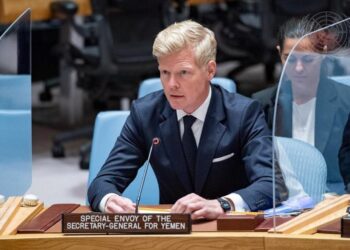Israel’s military said on Monday that it has intensified its air and ground bombardment of southern Gaza, as it widened its offensive and targeted Hamas’s strongholds in the region. Israel also ordered more civilians to leave their homes in south Gaza, where it said it would strike with “no less strength” than the north, which has been devastated by the Israeli offensive.
The Israel Defense Forces (IDF) said that its air force, navy and artillery have hit more than 500 targets in south Gaza since Sunday, including rocket launchers, weapons factories, command centers, training camps and media offices. The IDF said that its ground forces, which include tanks, bulldozers, infantry and combat engineers, have also advanced deeper into south Gaza, and have destroyed hundreds of kilometers of tunnels, which it calls the “Gaza metro”.
The IDF said that its operation aims to restore security and stability to Israel and to the region, and to degrade Hamas’s capabilities and deterrence. The IDF said that it holds Hamas responsible for the escalation and the suffering of the civilians in Gaza, and that it will not stop until it achieves its objectives.
However, the Palestinian health ministry said that more than 100 Palestinians have been killed and more than 300 wounded by the Israeli strikes in south Gaza since Sunday, bringing the total death toll in Gaza to more than 4,500 since the start of the war on October 7. The ministry said that most of the casualties are civilians, including women and children, and that many of the dead and injured are still buried under the rubble of their homes.
The ministry also said that the Israeli strikes have hit several areas where Israel had previously told people to seek shelter, such as UN-run schools and hospitals. The ministry said that these strikes have violated the international humanitarian law, and have endangered the lives of civilians and humanitarian workers.
Alarming Situation
The UN and other aid agencies have expressed alarm and concern over the situation in south Gaza, and have called for an immediate and unconditional ceasefire. They have also appealed for the protection of civilians and humanitarian workers, and for the delivery of humanitarian aid and fuel to the besieged territory.
The situation in south Gaza is particularly dire, as the region has been under a tight blockade by Israel and Egypt since 2007, when Hamas seized control of the territory from its rival Fatah, which is backed by the US and Israel. The blockade has severely restricted the movement of people and goods, and has crippled the economy and infrastructure of Gaza. The blockade has also prevented the reconstruction of the damage caused by the previous wars between Israel and Hamas, in 2008, 2012 and 2014.
The residents of south Gaza have also faced frequent attacks and incursions by the Israeli forces, as well as internal clashes and repression by Hamas. The residents have also suffered from chronic shortages of water, electricity, medicine and fuel, and from high rates of poverty, unemployment and disease. The residents have also endured the psychological trauma and stress of living under constant fear and uncertainty.
The residents of south Gaza have expressed their anger and frustration at the Israeli offensive, and their despair and hopelessness at the prospect of peace and justice. They have also accused the international community of indifference and complicity, and have called for more solidarity and support from the rest of the world. They have also appealed for an end to the violence and the blockade, and for a political solution that would address the root causes of the conflict, based on a two-state solution that would ensure the security of Israel and the dignity of the Palestinians.







